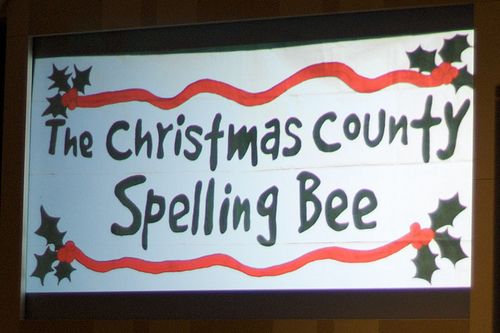How to Avoid Some Common College Application Mistakes
College Admission Has Gotten Highly Competitive
State colleges and universities, in particular, are seeing an unprecedented rise in the number of applications they receive. Much of this can be traced to rising tuition. The total cost of attendance at some private schools now runs about $60,000 a year.
Even relatively well-off families are seeking out public educations, as you can obtain a four-year degree for about half, or less, of the cost of attending a private college.
Bear in mind that these figures are only the "sticker price." Most students receive some form of institutional aid to help meet tuition.
However, in light of this situation, it's extremely important to submit an application that doesn't contain mistakes.
College Application Season
College admissions offices will soon be flooded with applications.
Many of them, though, will contain grammatical errors, misspelled words and other embarrassing gaffes.
You don't want this to happen to you. So what can you do to avoid some of the most common mistakes students make during the college application process?
Grammatical Errors are the Undoing of Many
This is one of the leading reasons students fail to make a good first impression. No matter how high your grade point average may be, it will pale in comparison to an application littered with mistakes.
Pay particular attention to commonly misspelled and misused words, such as it's and its and there and their.
Don't rely upon a computerized spell-check program. This may not be sensitive enough to flag every problem.
There is a saying that "Every writer needs an editor." Nowhere is this statement more true than when it comes to your college applications. You'll probably be very thankful you've taken the time to have someone proofread your entire application, especially your essay. The second set of eyes may spot something the first set missed.

Give it a Rest Before Hitting Submit
One tip to prevent mistakes from landing on an admissions officer's desk is to complete the application and essay well before the deadline. Sleep on it at least one night. Then go back to review it, looking for awkwardly constructed sentences, grammatical errors and typos. You'll be much more likely to see them after you've given the application, as well as yourself, some rest.
Amazingly, some college officials have reported that they've received applications, or parts of applications, that contain no capital letters. This appears to be a bad habit acquired by the text messaging generation.
Your Plans for College
When Will You Apply to College
Don't Include Too Much Information
For most schools, you need only two to three letters of recommendation, including your guidance counselor's letter, depending upon the school to which you apply. Too many more can jeopardize your chances of admission.
College officials are very much aware of the fact that some students don't have the sense to know when to stop. Sending dozens of recommendation letters may make the admissions department chuckle. But it certainly won't increase your chances.
Also, you'll only want to include recognition from your high school career. Anything earlier than that, such as winning a fourth-grade spelling bee, is irrelevant and won't impress the admissions team.
Making College Count
Don't Include Information from Your Elementary School Career

Clean Up Your Facebook Account
Don't even think about sending in a college application if your Facebook page contains anything incriminating. This includes foul language, hateful messages and any sensitive material that casts you in a bad light.
Pay special attention to photographs that may make you look silly instead of serious.
A growing number of admissions officers admit to using Facebook to find out more about the potential students they'd like to invite to campus.
One enormous mistake would be to try to "friend" an admissions officer on Facebook. This is considered highly inappropriate.
An Expert Tells You What to Avoid
Be Timely and Follow Instructions
Not submitting an application by the deadline, or failing to hit the submit button, are unfortunate pitfalls.
You must also make sure to get your letters of recommendation and SAT/ACT test scores to the schools of your choice, by the date they request them.
Fill the application out correctly and don't leave required sections blank. Make sure to list and provide a short explanation of your honors and awards.
The college application process has become increasingly competitive. Even if you have top grades and SAT scores, so do many others. It's the extras - awards and extra-curricular activities - that help tell the story of who you are, in order to present a more complete picture of yourself.
A Quilt of Colleges

Why it's More Important than Ever to Avoid Mistakes
Much of the competition for available college seats is being fueled by foreign applicants. These are students who can afford to pay full price tuition, room and board. Colleges are very eager to recruit these students, who won't need any institutional aid.
Also, an increasing number of colleges are using what's known as the Common Application, or the "Common App." This is an online tool that allows you to apply to multiple colleges using the same form. Although this saves a lot of time, it also leaves room for a high school senior to expose a single application mistake to a much wider audience.
How to Manage Your Facebook Page
Disclosure
I am a participant in the Amazon Services LLC Associates Program, an affiliate advertising program designed to provide a means for sites to earn advertising fees by advertising and linking to amazon.com.










